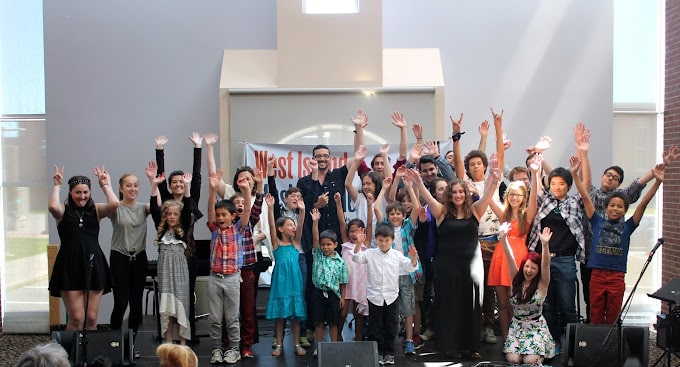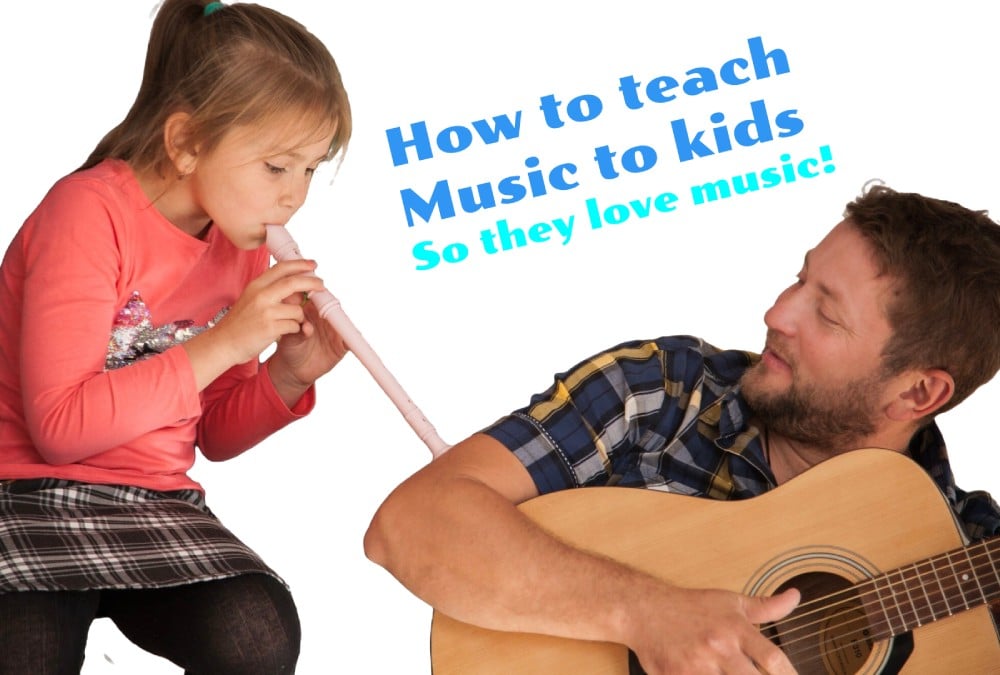
My name is Elijah Baker and I am the founder of Musiprof an online platform designed to help independent music teachers find students. I am also a music teacher based in Montreal, Quebec, Canada with over 15 years of experience teaching private music classes in many different music institutions. This article is designed to help music teachers learn about the various music teacher jobs available to them. To learn more about my approach to building a successful music teaching practice, read my article called How to Teach Music – 10 Ways to Keep Your Students Inspired.
1: Music Lesson Platforms
Music lesson platforms are online marketplaces that allow music teachers to market themselves to students looking for music lessons. Teachers on these platforms are self-employed contractors who offer their lessons in their own private studios, online or at the student’s home.
How do music lesson platforms work?
Teachers can usually sign-on through the platform’s website and follow the steps to become listed. Once approved, they are required to build an online profile using pictures, biographical information and details about their lessons. Some platforms allow teachers to upload audio and video of themselves. Having good media to share is a great way for teachers to promote themselves and allow students to learn more about them before signing up. When a student enquires about lessons, teachers are notified via email or text that a student is interested in working with them.
Pros:
- Higher pay: Pay is higher than teaching through private music schools.
- Location flexibility: Lessons take place at the teacher’s private music studios, the students’ homes or online.
- Policies to help teachers: Platforms often set guidelines to help structure the music lesson process. For ex. cancellation policies can be enforced by the platform.
- Invoicing: Automatic invoicing provided for tax purposes.
- Schedule flexibility: Teachers have control over their schedule and availabilities (convenient for gigging musicians).
- Autonomy: Teachers set their own teaching standards and don’t have a boss pressuring them.
Cons:
- Little sense of community: There are fewer networking opportunities with other music teachers.
- No guarantees: The number of students that sign up with each teacher will vary greatly.
- Required administration work: Teachers must respond to new enquiries themselves, which creates the need to do admin work.
Music Teacher Marketing
Platforms are popular since they generally take care of the marketing involved in bringing in students for their teachers. However, for teachers to stand out from the mix, they must spend time building up their profiles, to attract students. The following points should be considered:
- Appeal to beginners: Most students are beginners. They often worry that music teachers will not be interested in working with them since they are inexperienced. Therefore teachers need to address this concern by making their profiles welcoming to beginner students.
- Look and sound friendly: Upload a photo of yourself smiling broadly and looking friendly, rather than looking cool or intimidating. Write about how you create a friendly and judgement-free teaching environment that is welcoming to all.
- Highlight qualifications: List academic qualifications in music performance or teaching and highlight any outstanding teachers you might have had. You should also mention your experience with any musical groups you’ve performed with.
- Use video: Create a sample video lesson to give prospective students a glimpse of what you look like in action. For ex. see a video I made of myself teaching a song on YouTube.
- Reviews are key: Work on getting as many positive reviews as possible.
Music Teacher Picture

The teacher’s profile picture is the first thing that prospective students see before selecting their teacher. This picture needs to stand out and make a good impression. I’ve heard time and again from students that they just “had a good feeling about a teacher” from the profile picture. Read this guide to learn more about how to create a high-performing music teacher picture.
Reviews:
Most platforms float their highest-rated teachers to the top of the list since they provide the best value. Teachers should learn about how the review system works on their platform and encourage their students to provide reviews for them.
Lesson platform options:
- Musiprof – Become a teacher page (music teacher platform in Canada)
- Superprof (tutor website that includes music teachers)
- Lessonface (online music lessons only)
- Fiverr (freelance platform that contains music teachers)
- Find smaller local platforms in your area by Googling a relevant keyword: music lessons near me, or piano lessons near me.
2: Private Music Schools
Private music schools can be found in every medium to large size city and offer opportunities for music teacher jobs. They are a good option for someone who is looking to gain some experience as a music teacher. I’ve personally worked in several private music schools in Montreal, Quebec, Canada. It was a good opportunity to get started and gain experience. The video above is one I produced while working for the West Island Music Academy.
Pros:
- Sense of community: Teaching at a music school is a great way to network with other musicians since multiple teachers are often giving lessons at the same time.
- Fun atmosphere: In between lessons and during breaks, teachers can hang out, chat and network with each other.
- A pool of students provided: Schools provide a pool of students for their teachers and organize their teacher’s schedules to teach multiple students on the same day.
- Recitals: Schools often organize recitals and performance events for their students.
Cons:
- Low pay: Music schools have high overhead costs like renting or owning a building, buying musical instruments, hiring a front desk person, etc. As a result, their music teacher’s pay is often frustratingly low. When I was working in private music schools, I often thought to myself that I might as well work at McDonald‘s as the pay would be equivalent.
- Long commutes: Teachers often have to commute long distances to arrive at the school to offer lessons. Many music schools are located in suburban areas far from where their teachers live.
- Unpaid recitals: Schools usually don’t pay their teachers to attend recitals for their students.
How to get hired at a private music school
The best way to get your foot in the door at a private music school is through your network. While it is possible to apply through online job listings like Indeed, music schools only hire a small pool of teachers at a time, therefore, teachers are much more likely to get hired if they are recommended by another teacher who works there.
Use your network
Rather than endlessly browse job listing sites, use Linkedin to find other music teachers that you know who currently work at a private school. Ask them if they are willing to contact the school manager to recommend you. In my experience, teachers are much more likely to succeed this way.
Qualifications required
- Teachers need to possess a music degree from a recognized university or institution or be currently studying towards their degree in order to be considered.
- They do not need a degree in music education to be hired in a private music school, although this can help get them hired.
- Most private music schools require a police background check since most of the clientele are minors. Some schools will pay for their teachers to obtain a police background check, while others will ask that their teachers to obtain one on their own.
3: Public Music Schools
Teaching music in a public school requires a music teacher to obtain the right degree and certifications as well as to master classroom management (which is another skill set beyond working one-on-one). Requirements for music teacher jobs in public schools vary depending on the country, province, state, or region. Generally, candidates must meet specific educational, certification, and background qualifications.
Educational Requirements
- Bachelor’s Degree in Music Education: Most public schools require a degree that includes both music studies and teacher education courses.
- Alternative Music or Education Degrees: In some cases, a degree in music (performance, theory, or composition) paired with a teacher certification program is acceptable.
- Master’s Degree (Optional but Beneficial): Some positions or states may prefer or require advanced degrees.
Skills and Knowledge
- Musical Proficiency: Expertise on multiple instruments, vocal performance, conducting, or music technology.
- Classroom Management: Ability to maintain an engaging and organized classroom environment.
- Diverse Repertoire: Knowledge of various music genres and ability to teach students with differing skill levels and interests.
- Pedagogical Skills: Effective teaching strategies for different age groups.
In Conclusion: Music Teacher Jobs
The previously mentioned opportunities offer a variety of places to find music teacher jobs. Depending on your needs as a teacher, you can weigh the pros and cons of each school and make an informed decision as to where to apply. I hope this post will help you find many music teacher jobs!
About the author of this article:

Elijah is a highly skilled drummer with a university-level education and a wealth of experience in both teaching and live performance. After earning his Bachelor of Music from Concordia University in 2010, he has showcased his musical talents across all provinces in Canada and performed in over 20 countries worldwide. In addition to his performance career, Elijah is the founder of Musiprof, a platform dedicated to connecting music students with talented teachers across Canada. He has provided hundreds of music teacher jobs to Canadian music teachers.


